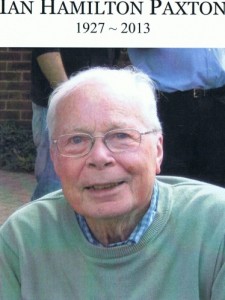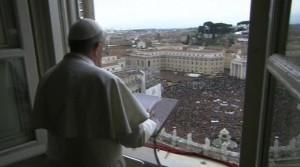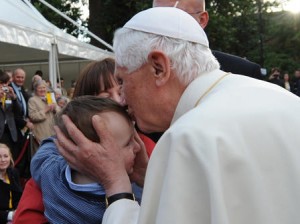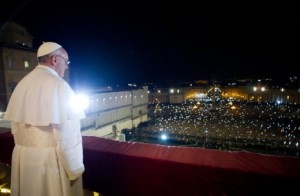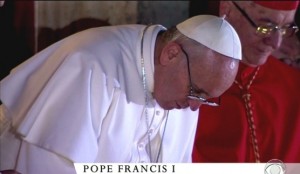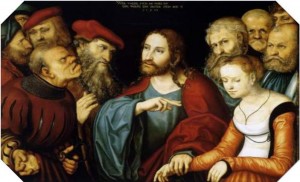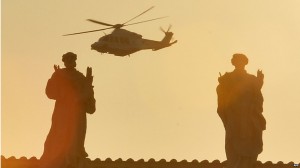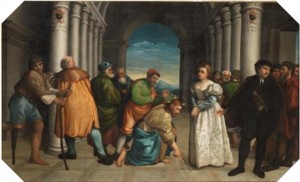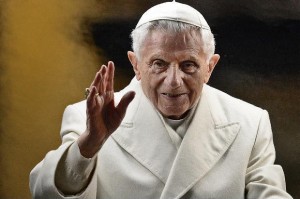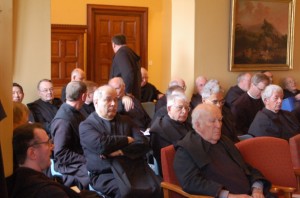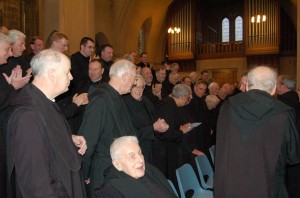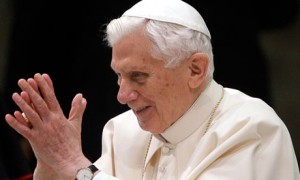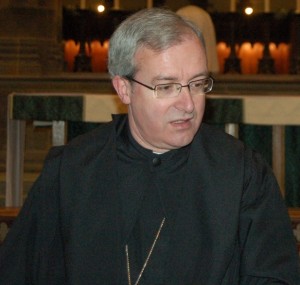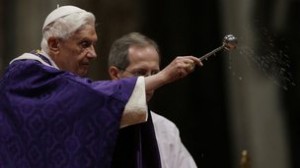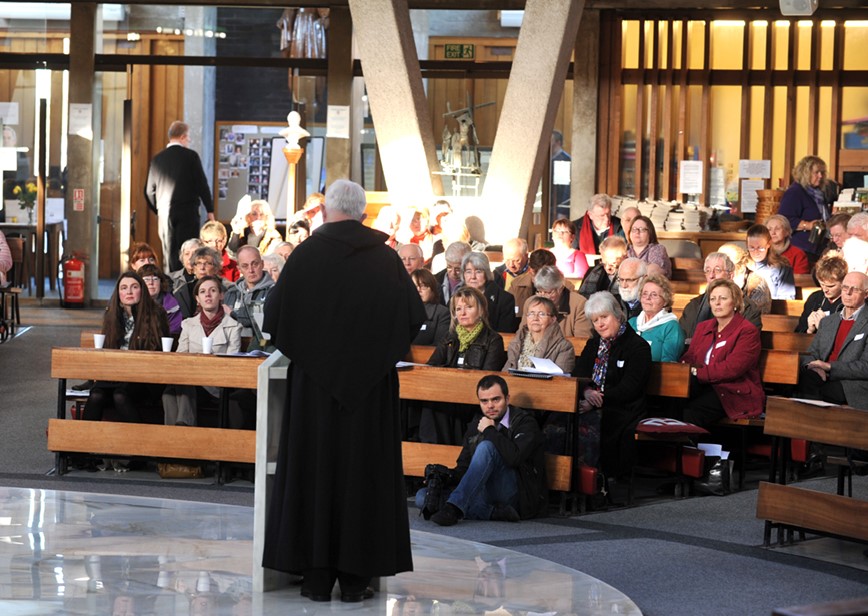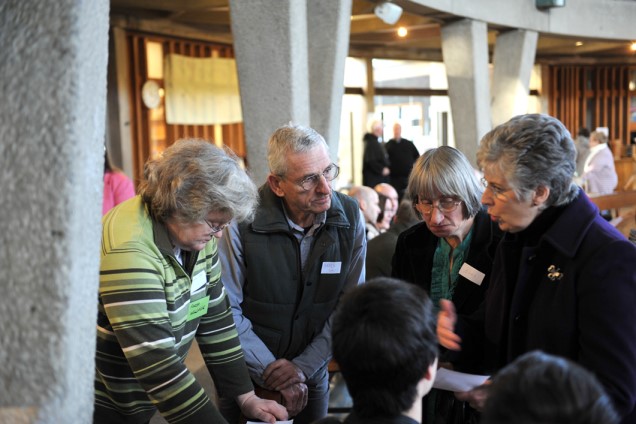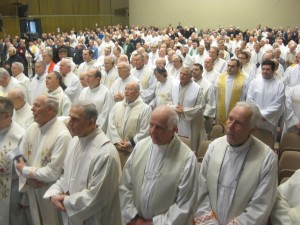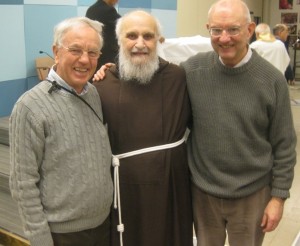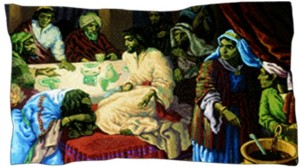It Takes Many Centuries To Reveal The Nature Of A Loving God; Easter Day Always:
Posted by SociusMar 28
The impression of the Old Testament God is that he is an avenger. He punishes those who disobey his commandments and wreaks vengeance on his enemies.
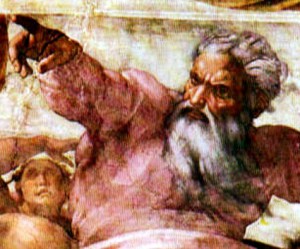 |
God the Father – Sistine Chapel – Michaelangelo
Actually, the New Testament tells us something about the inner nature of God, and that He is Love. Over time, as the Spirit of God has worked in the Church, we have learned that God is a Holy Trinity, and we are invited to enter into the loving relationship within God, in the mystery of the Holy Trinity, through our union with the Word of God, Jesus Christ.
Again, I emphasise, over time this relationship is changing and developing within us , constantly year by year, and, as a relationship is not a static thing, I wonder whether, in God, that relationship is also alive and changing? I would like to think so. For instance, at present Christians of all denominations find Pope Francis, and his simple and human behaviour, fascinating. Today, Holy Thursday, Pope Francis is going to a young offenders’ institution to wash the feet of 12 young people, in their prison – something not done before by any Pope. I wonder if, “in the Word of God” in heaven, there is as much interest in this new development within the Catholic Church, by the Holy and Undivided Trinity, as there is on earth? Does not our union with Jesus, as human beings and as Christians, ‘affect’ the Holy Trinity in some way? Jesus, ‘The Word of God’, necessarily, will always be intensely interested in what we on earth, in time and space, are thinking and doing, even if He lives outside time and space. It is all an intense mystery of Love that we cannot penetrate. I suppose it is akin to the mystery an unborn child might feel – before he, or she, is born – if only that unborn babe could think. What will the world outside my mother be like? Today, we could ask: “What will it be like, outside our world of time and space, in heaven?”
I have been thinking of the fantastic development of our understanding of God, since the Old Testament times – a development that is still continuing, even in our present day. It has taken all this time for us to see that ‘Revelation’, over centuries, was – and is – explaining the true nature of God; God is not vengeful, though it seemed that way, in the beginning. Rather, God is pure Love. He cannot act – except out of Love! No wonder he taught us to live the new commandment, “love each other as he has loved us”.
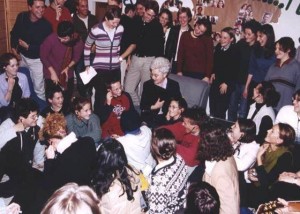 |
May the Gospel shine forth again, through us personally, in our homes,
in our cities, in our nations.
Chiara Lubich wrote what follows, for those who follow her way to be a Christian, and I find it expresses my own thoughts precisely:
“This explains today’s feast day, Maundy Thursday. Many years ago – and today too, Jesus gave the new commandment to his disciples, that commandment which is the fundamental law and basis of every other norm for each Christian; today too, Jesus prayed for unity: ‘that all may be one’; today too, he instituted the Eucharist that makes him present among us and indeed brings about our unity with Him and among us. And today too, he instituted the priesthood that makes the Eucharist possible. What would our life be like without the New Commandment, without the Eucharist, without the Ideal of unity?
Every day is Good Friday. Looking at the news, in front of the wars, killings and assassination attempts, one after the other we see pictures of inhuman violence and in the cry of those sufferings, resounds the cry of abandonment which Jesus cried out to the Father on the cross: ‘My God, my God, why have you forsaken me?’, his greatest trial and the darkest shadow. But it’s a cry which didn’t remain without an answer.
Jesus did not remain in the abyss of that infinite pain, but, with a huge and unimaginable effort he re-abandoned himself to the Father, overcoming that immense suffering and in this way he brought people back into the bosom of the Father and into a reciprocal embrace. He said: ‘Into your hands I commend my Spirit’.
From that cross Jesus, gives us the highest, most divine and heroic lesson on what Love is: a love which makes no distinctions, but loves everyone; which doesn’t expect anything in return, but always takes the initiative; that knows how to make itself one with the other, knows how to live the other; that has a measure that is infinite: it knows how to give its life. This love has a divine strength; it can produce the most powerful Christian revolution which must invade not only the spiritual realm, but also the human one, renewing its every expression: culture, politics, economy, science and communication.
The New Commandment of Jesus,’“love one another as I have loved you,’ when it is lived-out in a radical way generates unity and brings about an extraordinary consequence: Jesus himself, the Risen One, is present in our midst, as he promised ‘where two or three are gathered together in my name,’ that is, in his love.
‘Unity! We feel it, we see it, we enjoy it, but it’s ineffable! Everyone enjoys its presence; everyone suffers when it is absent. It is peace, joy, love, ardour, an atmosphere of heroism and utmost generosity. It is Jesus among us! And with Him, it’s a perennial Easter!’”
A Happy Easter to all who may stumble upon this blog.
Father Jonathan

